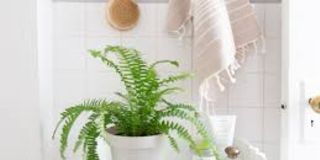Get your bathroom a plant

What you need to know:
Living plants do not only give your bathroom a more cosy appearance but also improve your décor style, are pleasant and also improve the quality of air
Some people have always preferred faux plants because all you need is to clean them, but living plants do not only give your bathroom a more cosy appearance but also improve your décor style, are pleasant and also improve the quality of air. They also absorb excess moisture.
Ethel Nambowa, a gardener and landscaper at Green Gardeners in Kasangati says plants that you choose for the bathroom should be those that survive in places with very little light or complete darkness because bathrooms usually do not have a lot of light.
The plants
While looking for a bathroom plant, it is better to go for indoor plants. Select plants that can survive even in small spaces.
Nambowa says, “Bathrooms are usually humid and moist; these conditions favour more tropical plants. However, many people have different tastes and preferences and they may go for flowering plants, water based plants or even ferns.”
Snake plant
Also known as the mother-in-law’s tongue, this plant acts as an air freshener which gives oxygen even at night. It can be put in any part of the house because they prefer indirect but steady light. They can adapt to both full sun conditions and dim situations.
Chinese evergreen
This plant thrives well in moist and humid places like the bathroom. It is very adaptive; prefers low light but also grows well in bright spots and can survive even when you forget to water it.
Lucky bamboo
The lucky bamboo requires minimal care and can be placed in the corner of your bathroom or near your dressing mirror.
Ferns are another good option for your bathroom. They give your bathroom a great look when put in a basket and displayed at the windowsill.
Other plants include Peace lily, Aloe vera, English Ivy and the Money plant. Not all plants enjoy high humidity in the bathroom. Succulents, for instance, prefer drier conditions and will rot if they are constantly kept moist.
She says, “The cost of bathroom plants depends on the type of plant you want to buy, the pot used and the size of the plant. If they are in plastic small planters, they can cost Shs15000 to Shs200,000 if they are in a ceramic planter.”
Where to place your bathroom plant depends on what you really want but you can design a stand and put it on, near the dressing mirror, in the corner or the bathroom window but make sure to avoid getting soap on them.
Care and maintenance
The humidity in the bathroom provides a good environment for the survival of the plant but if you have chosen a plant that needs some light, then put that into consideration. Ensure that there is some natural lighting through the bathroom window or consider using artificial light.
Joyce Namakula, a homeowner, says bathroom plants are very easy to maintain but she warns that it should be strategically placed where it will not get into contact with soap or any other laundry detergents because these harm them and may actually wither and die out.
She says, “The amount of water your bathroom plant needs depends on the temperature and the amount of sunlight it receives. However, if the soil in the plant feels dry, water the plant until it drips out. I usually water mine once a week.”
Normally, indoor plants are easily attacked by insects and fungal infection because of the coldn according to Nambowa. It is, therefore, recommendable to keep wiping them with clean water and a cotton cloth.
Nambowa remarks that the basic factors for choosing a bathroom plant should be about the humidity, amount of light needed and the temperatures a particular plant needs to flourish.
Harmful plants
Some plants such as the Peace Lily, Devil’s Ivy, English Ivy are poisonous if ingested. Sometimes even touching the leaves can cause skin irritation. So choose wisely. If you must have them, keep them out of reach of children and pets, however, its best to avoid such plants entirely.
Benefits
Shower plants improve air quality, and also absorb excess moisture, get rid of bacteria and are known to boost mood.




